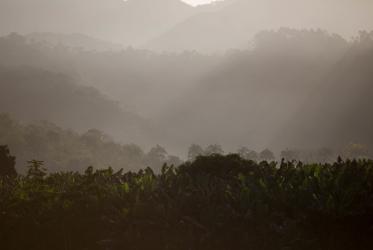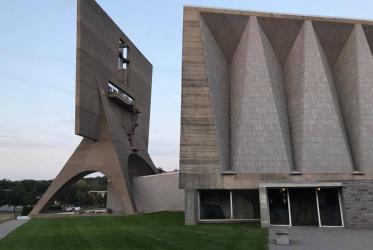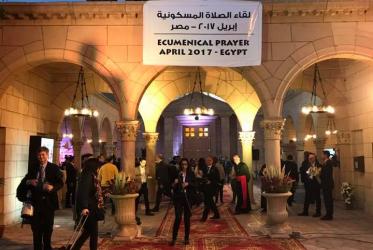Displaying 101 - 120 of 202
22 November 2017
Une déclaration du COE exhorte à protéger l'Amazonie
22 November 2017
WCC appoints new representative to the UN
27 October 2017
Churches call for urgent action for Cremisan Valley
28 September 2017
Dozens of countries sign nuclear weapons ban treaty
20 September 2017
Emily Welty: tide of hope for a world free from nuclear weapons
19 September 2017
Tveit: search for unity “an urgent need today”
09 September 2017
In Charlottesville, can “the power of love” prevail?
14 August 2017
WCC decries escalation of Syria conflict
07 April 2017
In Lebanon, refugees face hardship - but find hope
16 March 2017
WCC gravely concerned over Israel’s travel ban
09 March 2017








